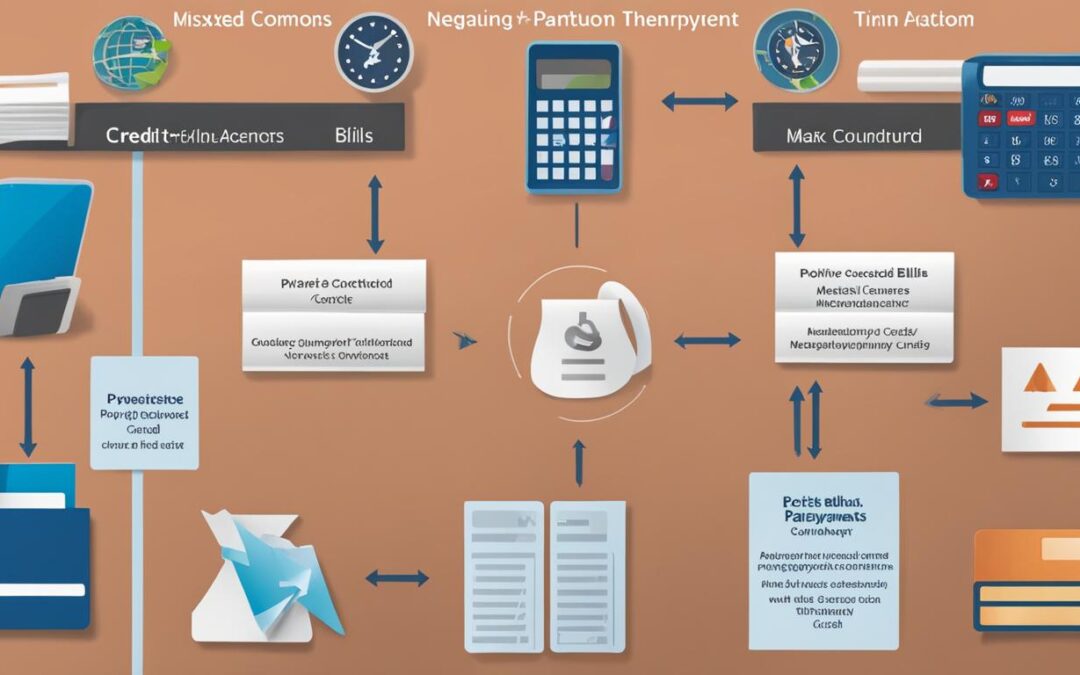Managing your personal finance is crucial for a healthy financial future. One key aspect of finance management is your credit score. Your credit score plays a significant role in your ability to secure loans, favorable interest rates, and even potential job opportunities. If you’re looking to improve your credit score, you’re in the right place. In this article, we will guide you through simple steps to boost your credit score and pave the way towards financial success.
Improving your credit score might seem like a daunting task, but it doesn’t have to be complicated. By following a few straightforward strategies, you can make a positive impact on your creditworthiness and financial well-being. Whether you’re looking to establish your credit for the first time or rebuild your credit after experiencing setbacks, these steps will set you on the right path.
In this article, we will delve into various aspects of credit score improvement, such as how credit scores are calculated, how long it takes to rebuild a credit score, building credit from scratch, and valuable credit education resources. With the right knowledge and actions, you can make significant progress in improving your credit score and creating a solid foundation for your financial future.
So, let’s dive into the world of credit scores and discover the simple steps you can take to enhance your creditworthiness. Whether you’re aiming for a better interest rate on a mortgage or wanting to qualify for a rewards credit card, improving your credit score will bring you one step closer to your financial goals. Let’s get started!
Steps to Improve Your Credit Scores
If you’re looking to improve your credit scores, it’s essential to take specific steps that can positively impact your financial health. By following these strategies, you can increase your credit scores and gain more financial opportunities.
1. Open accounts that report to the credit bureaus
One of the first steps to improve your credit scores is to open accounts that report your payment history to the major credit bureaus. This includes credit cards, loans, and other forms of credit.
2. Maintain low balances
Another significant factor in improving your credit scores is to maintain low balances on your credit accounts. High credit utilization can negatively impact your scores, so aim to keep your balances as low as possible.
3. Pay your bills on time
Consistently paying your bills on time is crucial in improving your credit scores. Late payments can significantly harm your scores, so make sure to prioritize your payment deadlines and set up reminders if needed.
4. Build a positive credit file
Building a positive credit file involves creating a history of responsible credit usage. If you’re starting from scratch, it’s essential to open new accounts that will be reported to credit bureaus. Consider options like credit-builder loans, secured cards, or becoming an authorized user on someone else’s credit card to establish a positive credit history.
5. Obtain your credit report
Obtaining your credit report is a crucial step in understanding your current credit situation. It provides valuable insights into your credit file, including any potential errors or areas for improvement. You can obtain a free copy of your credit report from each of the major credit bureaus once a year.
By following these steps, you can actively work towards improving your credit scores and setting yourself up for a healthier financial future.
Don’t Miss Payments
Your payment history plays a significant role in determining your credit scores. It is crucial to prioritize making loan or credit card payments on time to maintain a positive payment history and avoid negative impacts on your credit scores.
Late payments can have adverse effects on your credit scores, so it is important to ensure that you don’t miss payments by more than 29 days. Even a single late payment can lower your credit scores and stay on your credit report for up to seven years.
To help stay on top of your payments, consider setting up automatic payments. This can ensure that your bills are paid on time, avoiding any late payment repercussions. If you are facing financial difficulties, reach out to your credit card issuer to discuss possible hardship options. They may be able to offer you alternative payment arrangements to help you meet your obligations without damaging your credit.
It’s also worth noting that not all accounts that require payments appear on your credit reports. Some subscriptions or memberships, like gym memberships or streaming services, may not typically be reported. However, failing to make payments on these types of accounts can still lead to negative consequences, such as collections. Therefore, it is essential to stay on top of all your payment obligations.
Remember, maintaining a positive payment history by making on-time payments is crucial for a healthy credit profile. By being proactive and diligent in managing your credit card payments, loan payments, and other financial obligations, you can build a strong payment history that supports your creditworthiness and opens doors to better financial opportunities.
Catch Up On Past-Due Accounts
If you find yourself with past-due accounts, it’s essential to take action to bring them current. By doing so, you can significantly improve your credit scores and pave the way for a healthier financial future.
Late payments can have a long-lasting impact on your credit report, staying on record for up to seven years. However, by making an effort to bring all your accounts up to date, you can negate some of the negative effects of these late payments.
For individuals struggling with credit card debt, seeking assistance from a credit counselor and enrolling in a debt management plan can provide a viable solution. These professionals can help negotiate lower payments and interest rates on your behalf, making it easier to bring your accounts current.
Entering a debt management plan allows you to make a single monthly payment to the credit counseling agency, which will then distribute the funds to your creditors. This streamlined approach can help you stay organized and make steady progress towards paying off your debts.
By working with a credit counselor and adhering to a debt management plan, you not only bring your past-due accounts up to date but also demonstrate your commitment to responsible financial management. This positive action can help improve your credit scores over time.
If you’re dealing with past-due accounts, don’t hesitate to reach out to a credit counselor and explore the options available to you. With their guidance and support, you can regain control of your finances and set yourself on a path towards a brighter financial future.
Pay Down Revolving Account Balances
Maintaining a low balance on your revolving credit accounts, such as credit cards and lines of credit, is crucial for improving your credit scores. When you carry high balances, it can lead to a high credit utilization rate, which negatively impacts your scores. To avoid this, it’s recommended to keep your credit utilization ratio in the low single digits to achieve the highest credit scores.
One effective strategy to improve your credit scores is to pay down your revolving account balances. By reducing the amount you owe on these accounts, you demonstrate responsible money management, which is highly valued by lenders and credit bureaus.
To begin paying down your revolving account balances, start by reviewing your credit cards and lines of credit. Identify those with the highest balances and prioritize paying them off first. Allocate additional funds towards these accounts each month to accelerate your progress.

Consider implementing the following strategies to effectively pay down your revolving account balances:
- Create a budget: Track your income and expenses to identify areas where you can cut back and allocate more money towards debt repayment.
- Pay more than the minimum payment: Aim to pay more than just the minimum amount due on your credit card statements. By doing so, you’ll reduce the principal balance faster and save on interest charges in the long run.
- Utilize windfalls: Use any unexpected income, such as tax refunds or bonuses, to make lump sum payments towards your revolving accounts.
- Consider a balance transfer: If you have a high-interest credit card balance, transferring it to a card with a lower interest rate can help save money on interest charges while you pay down the debt.
- Seek professional advice: If you’re struggling to manage your revolving account balances, consider reaching out to a credit counselor who can provide guidance and assist you in developing a debt repayment plan.
By taking proactive steps to pay down your revolving account balances, you’ll not only improve your credit scores but also gain financial peace of mind.
Limit How Often You Apply for New Accounts
When it comes to improving your credit scores, it’s important to be mindful of how frequently you apply for new credit. Each time you submit a new credit application, it triggers a hard inquiry, which can have a slight negative impact on your credit scores.
Additionally, opening a new account lowers the average age of your accounts, which is another factor that can affect your credit scores. So, while it’s true that opening new accounts can help build credit, it’s crucial to strike the right balance and avoid excessive new credit applications.
That being said, there are certain exceptions when it comes to rate shopping. For example, if you’re in the market for an auto loan or mortgage, multiple applications within a short timeframe are typically treated as a single inquiry. So, you won’t have to worry about each application hurting your credit scores.
By being cautious with new credit applications, you can maintain a healthy average age of accounts and ensure that hard inquiries don’t have a significant impact on your credit scores. Remember, a good credit history and responsible credit management are key to achieving your financial goals.

